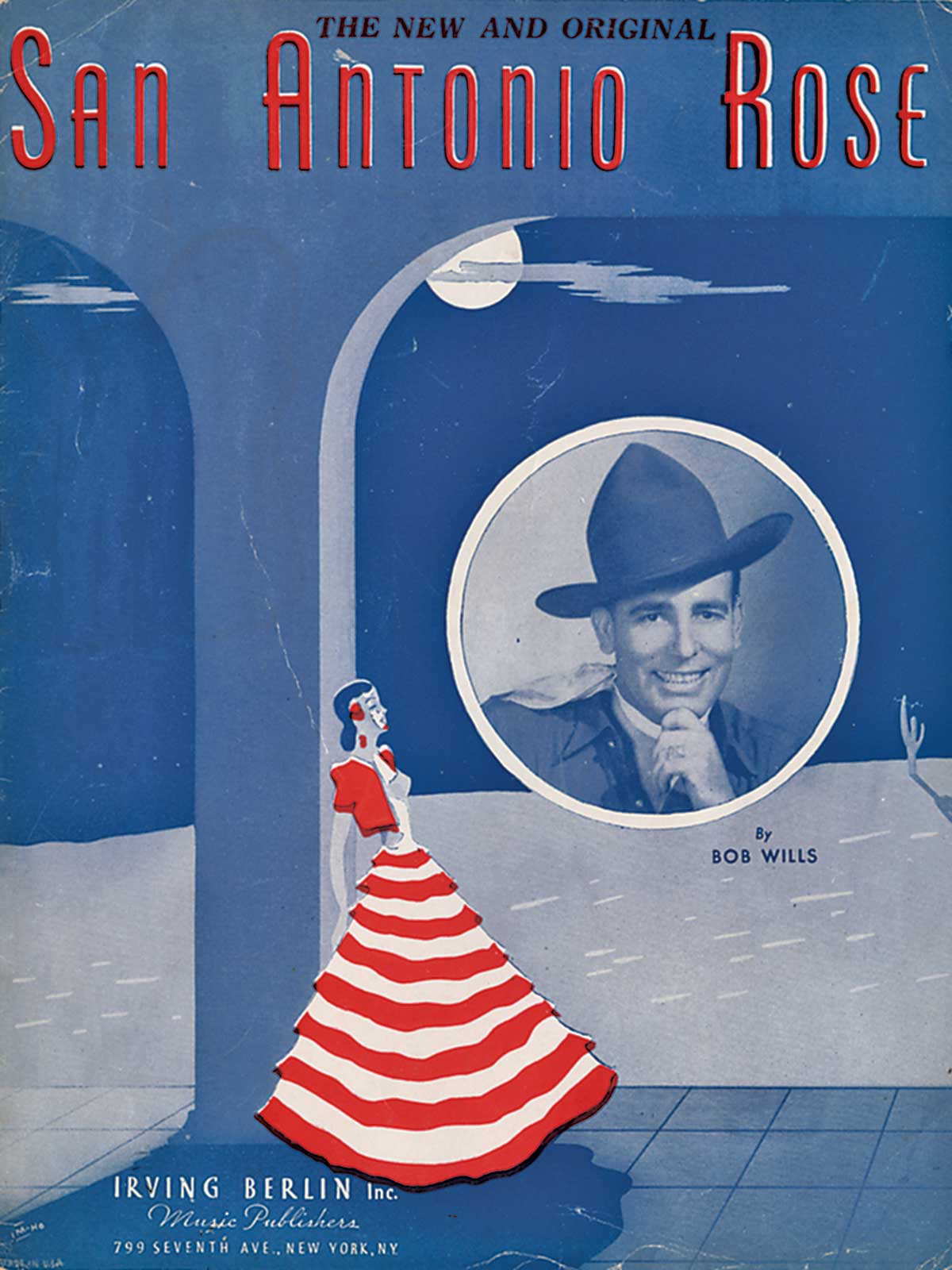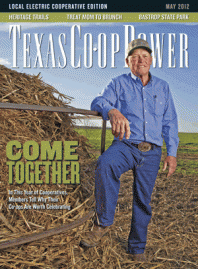Bob Wills’ records sold in the millions. But one extra-special song—“San Antonio Rose,” which later became “New San Antonio Rose”—put him on the musical map to stay. A diverse group of artists, from Bing Crosby to Arthur Fiedler and the Boston Pops, recorded their own versions of the song. Apollo 12 astronauts Charles Conrad and Alan Bean even sang it from space—an honor that was truly out of this world. But the story all began with the birth of John and Emmaline Wills’ first of 10 children, a son they nicknamed “Jim Rob.”
James Robert Wills was born on March 6, 1905, on a farm near Kosse in Limestone County. A relative noted that the baby’s fingers looked like those of a fiddler. Both of his grandfathers, his father and most of his uncles played the fiddle, so this was a good omen: Jim Rob first played the fiddle onstage with his family when he was about 10; and during his childhood, Jim Rob and his father wrote the melody for “Faded Love.” It wasn’t until 1950, courtesy of Jim Rob’s youngest brother, Billy Jack, that the song gained lyrics.
In the early 1920s, the Wills family settled on a farm near Turkey. Jim Rob decided to strike out on his own. From 1921 to 1926, he held a variety of jobs, including farmworker and preacher, but he always returned to music. Now that he had a family to support (he married his first wife, Edna, in 1926), Jim Rob trained to become a barber, figuring that it would keep his hands in good condition for fiddle playing.
After graduating from Dendy’s Barber College in Amarillo in 1927, he and Edna moved several times, first to Roy, New Mexico, where he barbered by day and fiddled by night, then back to the Wills family farm in early 1928.
Jim Rob got a job at Ham’s Barber Shop in Turkey and played at many of the teenage dances in area towns. But the need to move on soon struck again. In 1929, the family moved to Fort Worth, where Jim Rob—who became known as Bob Wills—met several other musicians and formed a band. Wills made his first radio recordings in 1929, and in January 1931, he and his band played on radio station KFJZ during the first broadcast of a show sponsored by Burrus Mill and Elevator Company, which made Light Crust flour. On air, Wills jokingly referred to the band as the Light Crust Doughboys, and the name stuck.
Wills left the Doughboys in 1933 to start a new band, and at midnight on February 10, 1934, the first live show featuring Bob Wills and His Texas Playboys was broadcast on radio station KVOO in Tulsa, Oklahoma.
The band’s popularity grew quickly. In 1935, New York’s Brunswick Record Corporation (later part of Columbia Records) offered the Texas Playboys a recording contract. Three years later during a recording session, Art Satherley, the artists and repertoire man, asked Wills for more fiddle tunes. Wills tinkered with an earlier composition that he called “Spanish Two Step,” creating a new instrumental. Satherley suggested calling the song “San Antonio Rose,” and the rest is history.
Songwriter Irving Berlin’s publishing company offered to publish the song if Wills would compose lyrics. Several band members submitted lyrics that were rejected. Playboys trumpeter Everett Stover collaborated with Wills on the final set of lyrics. Ultimately, this new version was named “New San Antonio Rose.”
Columbia Records set up a recording session on April 16, 1940, probably at Burrus Mill Studio in Saginaw. The Playboys had grown into a big swing band with about 18 musicians participating in the session. The next-to-last song recorded was “New San Antonio Rose.”
As noted in Charles R. Townsend’s book San Antonio Rose (University of Illinois Press, 1976), Wills often said that the song—which produced a gold record, eventually selling more than a million copies—took him “from hamburgers to steaks.” The 1940 recording of “New San Antonio Rose” was the biggest-selling record he ever cut and became an American classic known and loved around the world.
Wills, the King of Western Swing, died on May 13, 1975. But at least one group, Austin’s Asleep at the Wheel, has kept his brand of music alive and thriving since the 1970s. The words of the group’s frontman, Ray Benson, as quoted by a country-music author, sum up this music legend’s life: “Western swing would have just been a footnote in American music if it weren’t for Bob Wills.”
——————–
Dallas-based freelance writer Lori Grossman is a native San Antonian.


